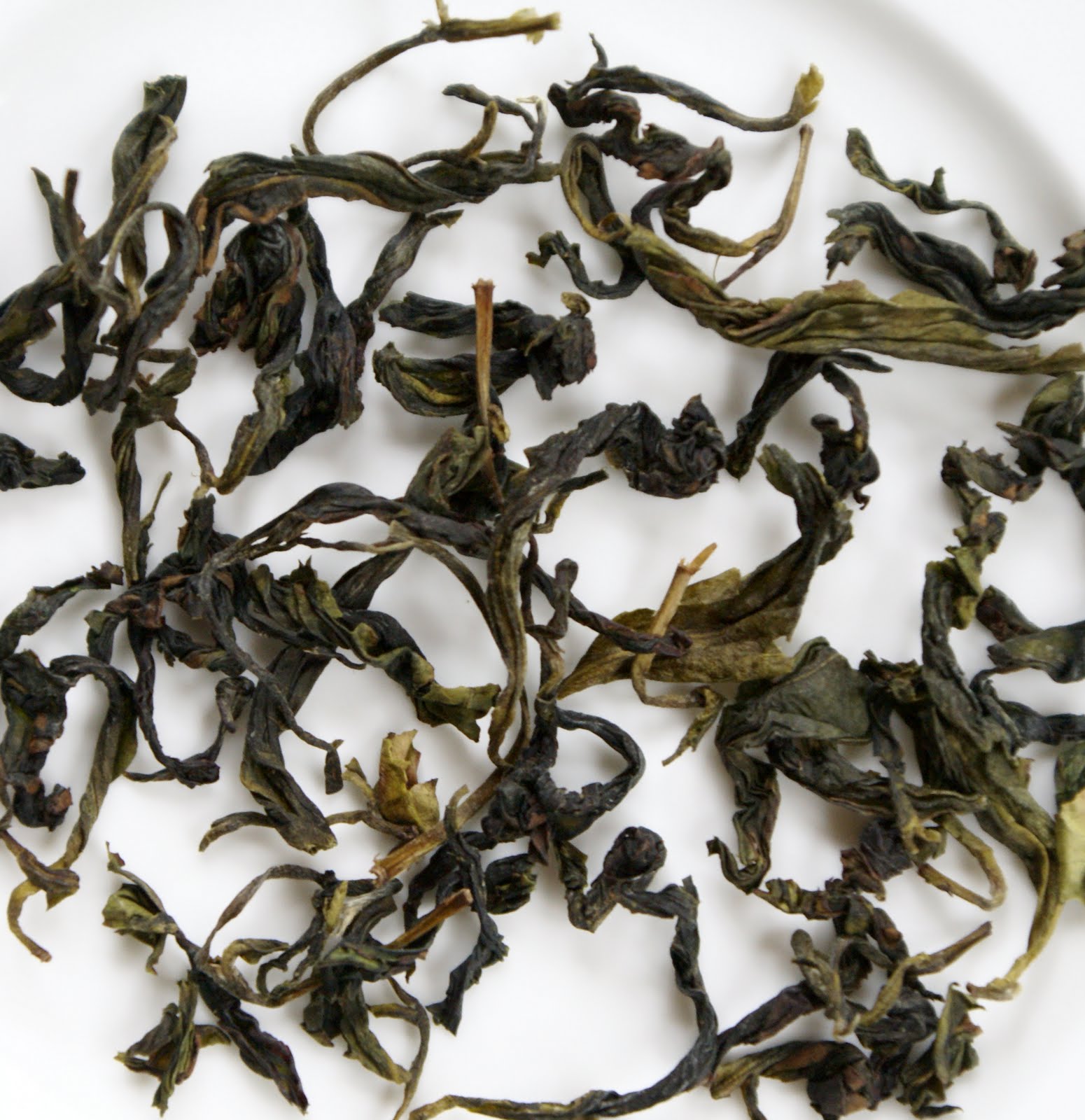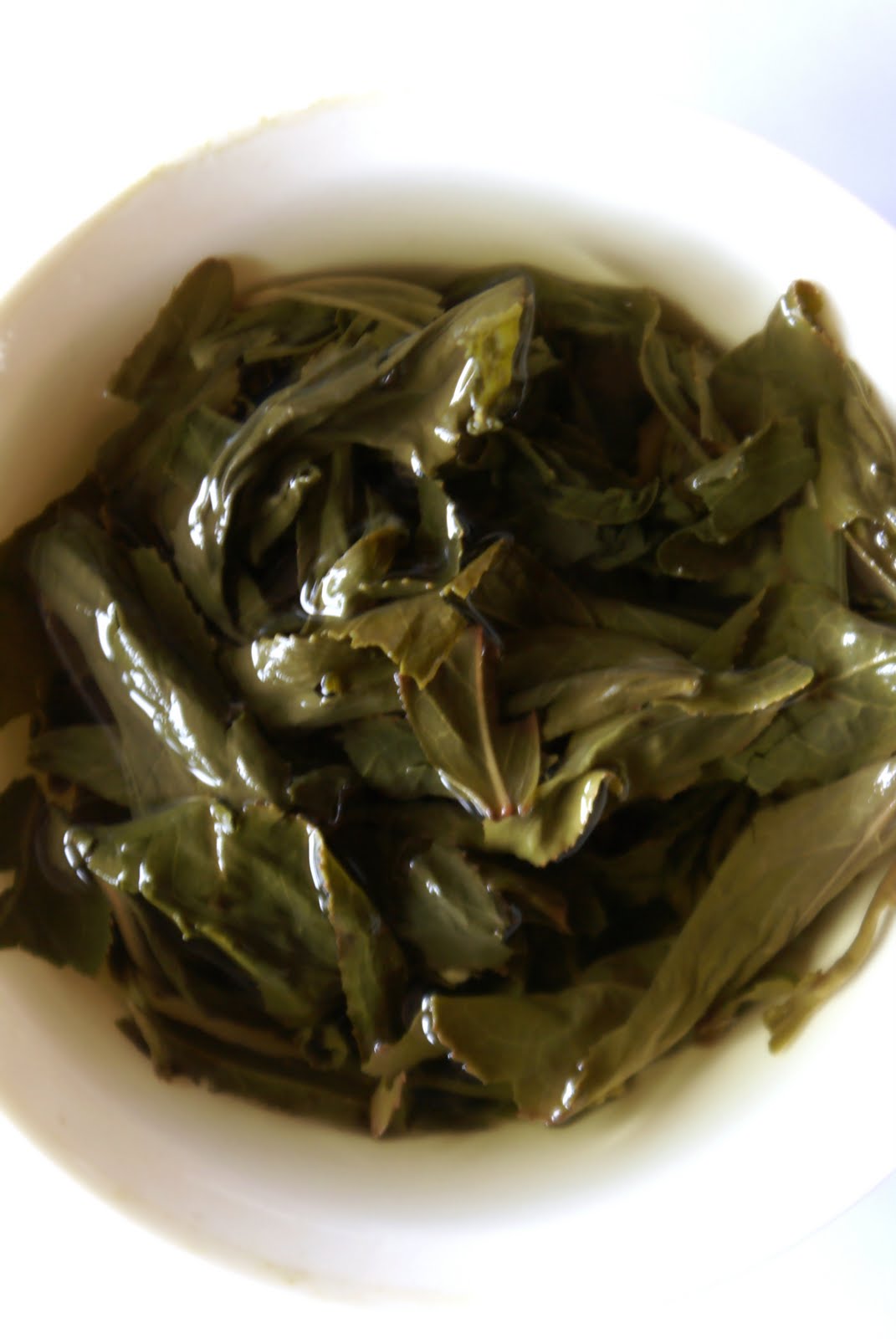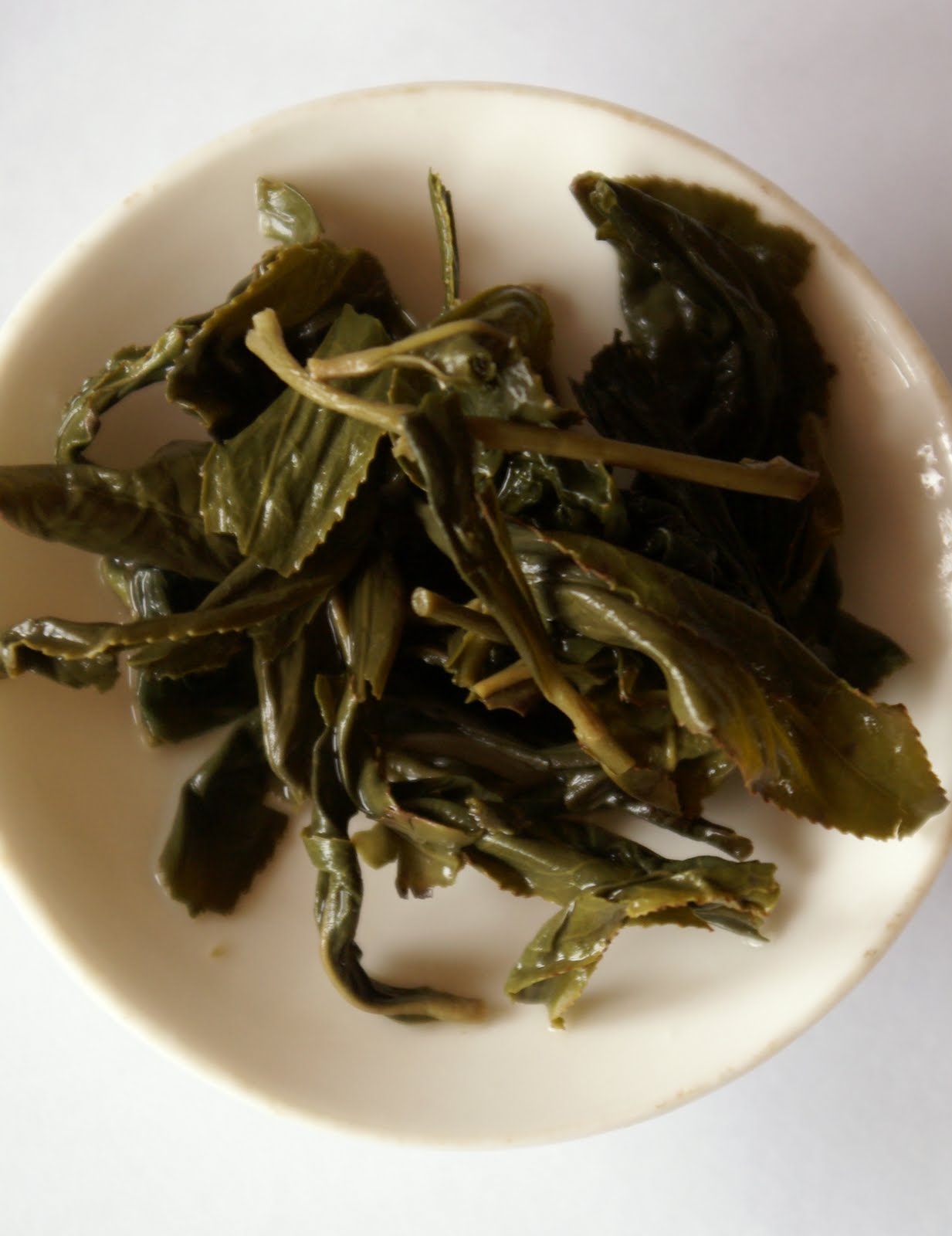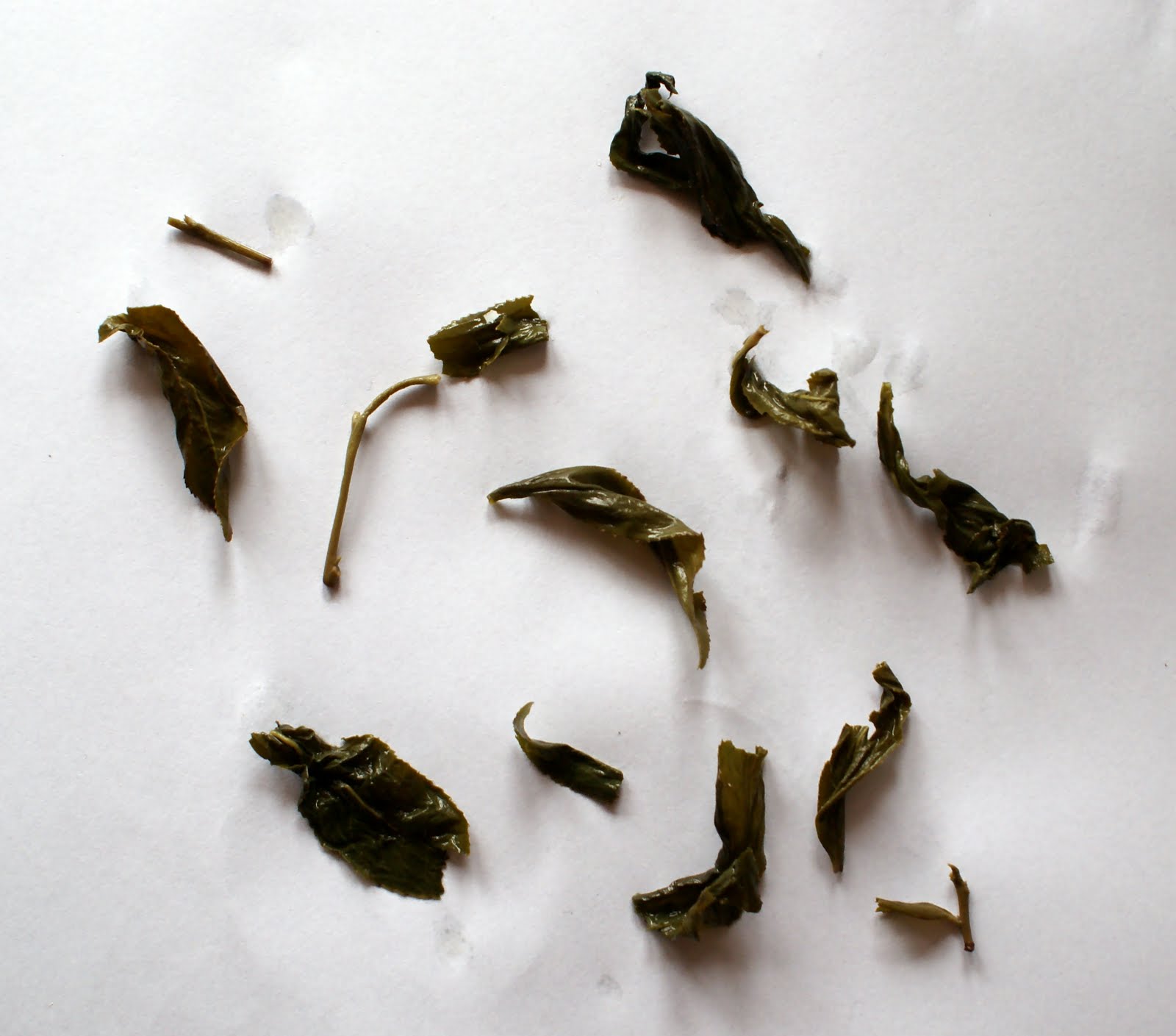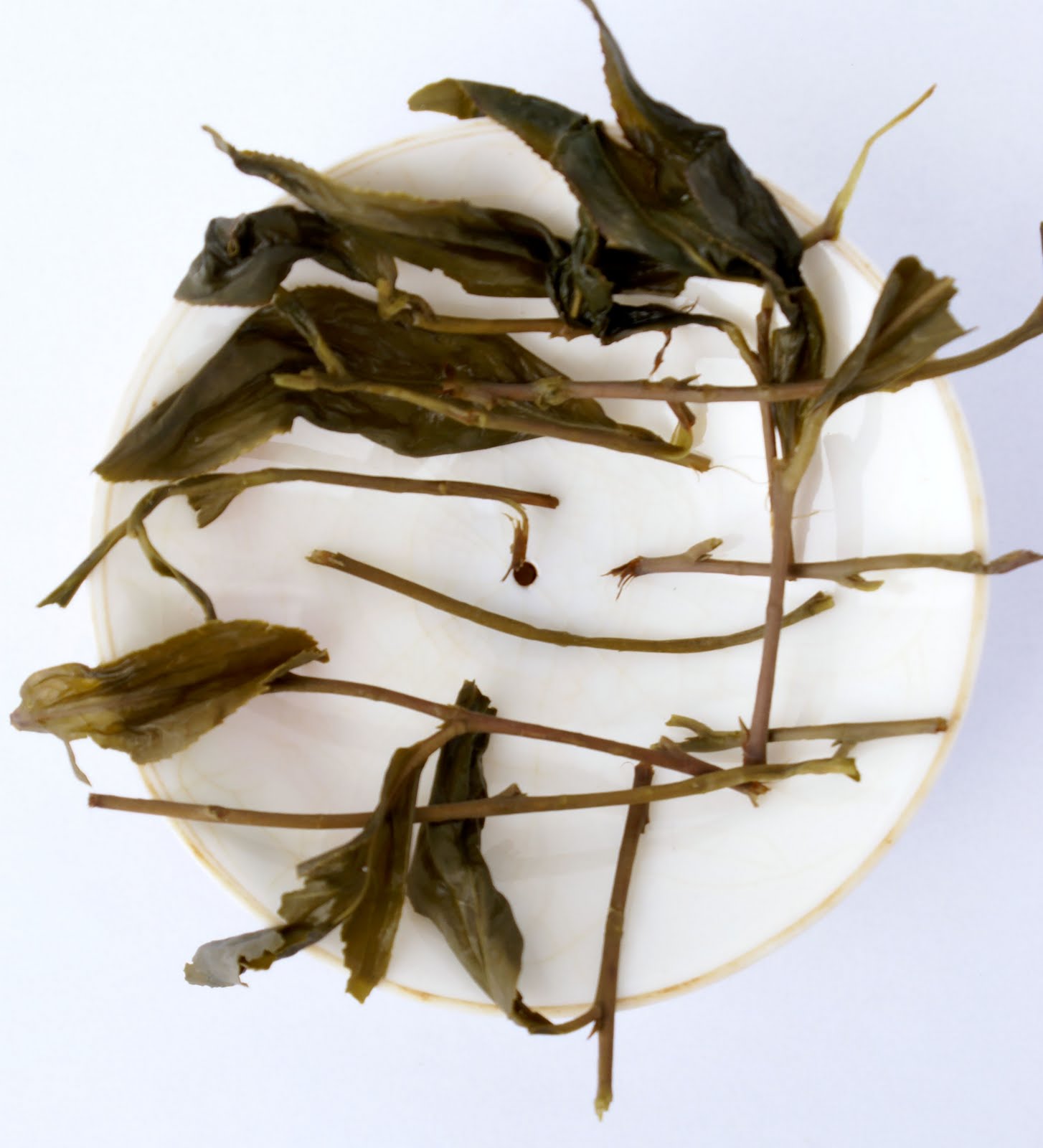2009 Semi-Wild Tree Baozhong
Posted on 3 April 2010
As the days grow longer and warmer it’s time for some lighter tea. I’m currently having a good look at this 2009 Baozhong I got from Taiwanese specialist Tea Masters. This tea is interesting in being sourced from semi-wild tea trees in the mountains of Taiwan (read full story here). While there’s a reasonable number (though far less than unscrupulous vendors would have you believe) of wild tree puer from Yunnan in China, it’s extremely rare to come across a wild tree oolong tea.
This tea introduces an interesting variation to the Baozhong typicity. Although it keeps the high floral notes and the ripe exotic fruit elegance of its genre, it is less aromatic than many of its siblings. Instead, it focuses on purity. Its aroma and flavour are remarkably precise and seem to be fairly tolerant of brewing conditions. In my experience, Baozhong is usually fairly sensitive to overbrewing, and can develop unpleasantly dominant, bitter vegetal notes. The 2009 Semi-Wild Tree is more magnanimous towards the inexperienced brewer.
With the florality less forward, the texture in mouth is emphasised, and its silky buttery richness reveals more than a vague similarity to Taiwanese high-mountain oolong (gaoshan). It’s as if underneath the sweet, pungent bouquet of farmed tea, a deeper essence of mountaineous terroir was taking the fore.
A truly interesting tea, and kept affordable at 22€ / 100g (but quantities are limited and this is now sold out).
A truly interesting tea, and kept affordable at 22€ / 100g (but quantities are limited and this is now sold out).
2009 Semi-Wild Tree Baozhong: small leaves that I take as a characteristics of the semi-abandoned, unfertilised trees.
Brewing this tea over several days, I’ve also taken the opportunity to refresh my memory about a couple of older, 2008 Baozhongs from the same source. The Fleur de Lys version I blogged on last year did go through a less inspiring period of seeming staleness last autumn, but it actually seems to be experiencing a minor revival. It’s vegetal with a diminished aroma but actually shows a pleasant clean taste and nice Cox apple juiciness. It shows that even for low-oxidised, unroasted Baozhong the lifespan can be of several years. And it seems the right sort of tea for ‘home refreshment’ (operating a short re-roast; I didn’t try though).
The 2008 Young Tree Baozhong is another interesting variation on the theme. Here, atypically, the virgin leaves or very young trees are processed unblended, and the dry material includes a large proportion of stems which, according to Tea Masters, increases the sweetness and mouthfeel of the tea. Stylistically this comes midway between the two Baozhongs mentioned above, with the intense upfront florality of the Fleur de Lys but also the extra depth and dimension of the Semi-Wild Tree. This tea really packs in quite some punch and should be brewed light accordingly. (Failure to do so results in a dark-coloured, honeyed, somewhat ‘stewed’ taste). A tea with plenty of presence and striking purity, this really rises majestically above the Baozhong average, and is a real grand cru.
The 2008 Young Tree Baozhong is another interesting variation on the theme. Here, atypically, the virgin leaves or very young trees are processed unblended, and the dry material includes a large proportion of stems which, according to Tea Masters, increases the sweetness and mouthfeel of the tea. Stylistically this comes midway between the two Baozhongs mentioned above, with the intense upfront florality of the Fleur de Lys but also the extra depth and dimension of the Semi-Wild Tree. This tea really packs in quite some punch and should be brewed light accordingly. (Failure to do so results in a dark-coloured, honeyed, somewhat ‘stewed’ taste). A tea with plenty of presence and striking purity, this really rises majestically above the Baozhong average, and is a real grand cru.


